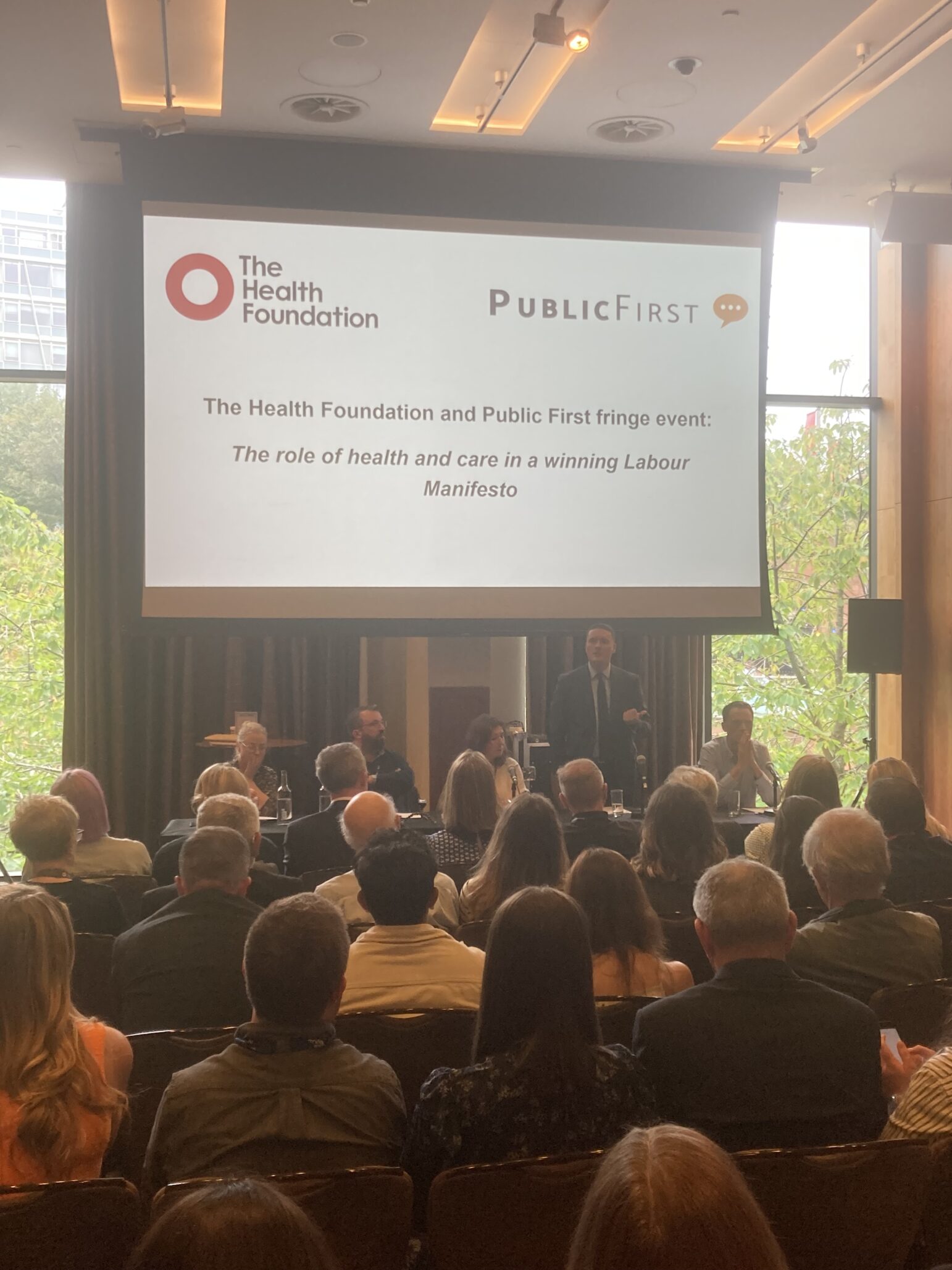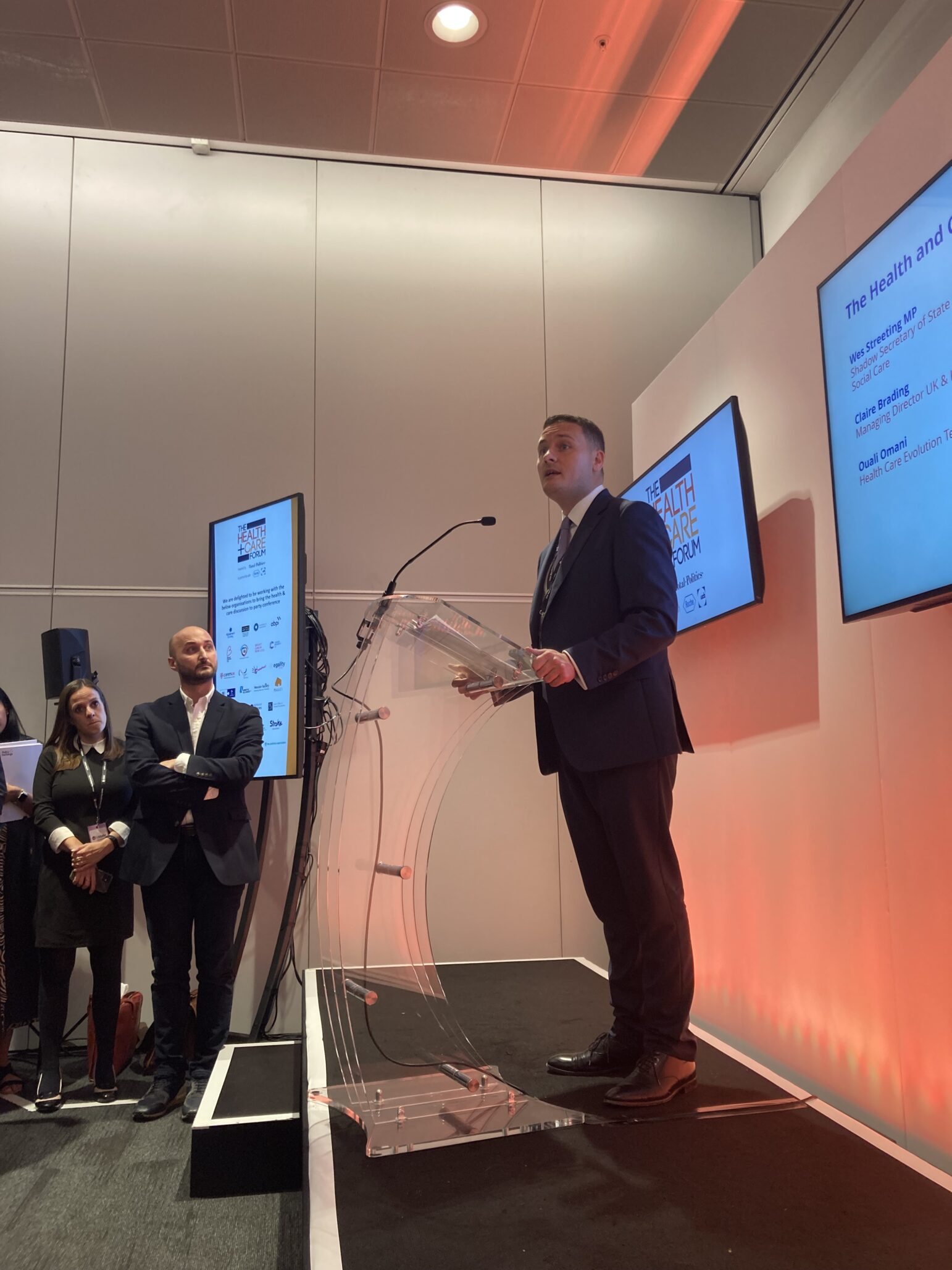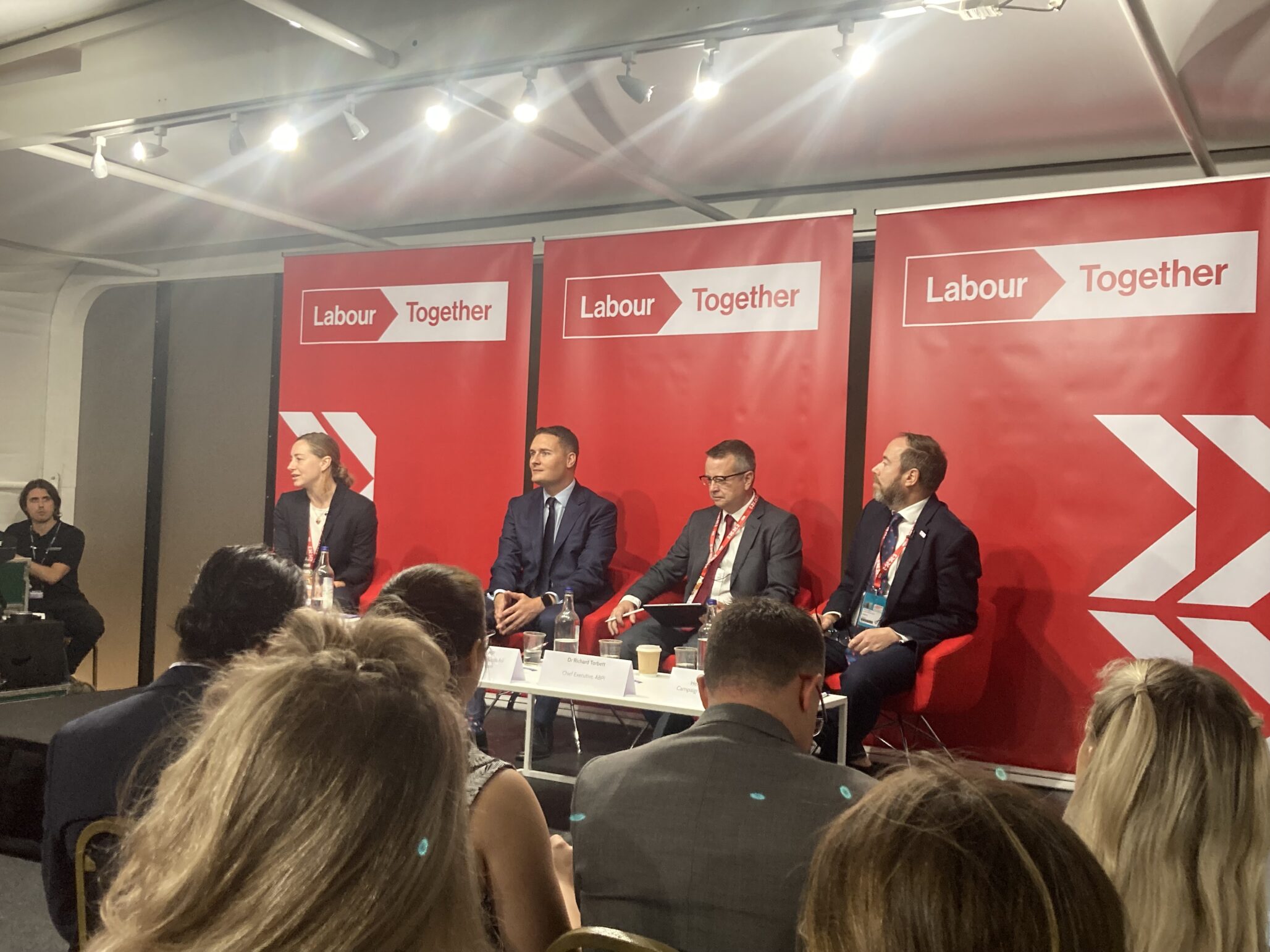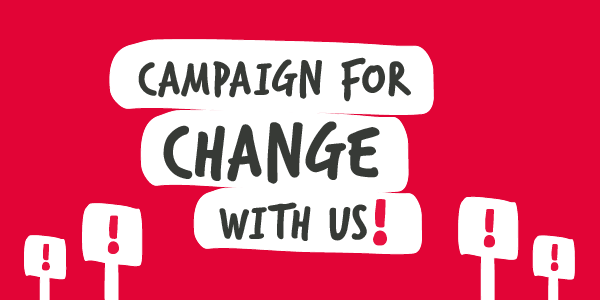Earlier this week, the Labour Party Annual Conference was held in Liverpool. These party conferences are great opportunities to make connections with people who influence policy decisions and let them know about the difficulties faced by the brain tumour community.
The Labour Party Annual Conference brings together Labour Shadow Ministers and Secretaries of State, MPs and other powerful organisations and think tanks all in one place. Essentially, these are many of the people who are responsible for holding the current Government to account. So we knew we had to be there!
In this blog post we’ll share our experience at the conference, as well as look at some of the key takeaways and what they could mean for people affected by a brain tumour.
Our experience at the Labour Party Annual Conference
Attending the Labour Party Annual Conference was a really positive and productive experience for The Charity. It gave us incredible opportunities to spread the word about the difficulties people face in getting a brain tumour diagnosis and following their diagnosis.
By having conversations with attendees, contributing to panels and listening to speeches firsthand, we put The Brain Tumour Charity in a better position to influence the people who hold power.
We must ensure that people diagnosed with a brain tumour are remembered in national health plans and we’ll continue to hold Labour to account on this if they’re elected.
A commitment to a meeting with Labour’s Shadow Health Team
Perhaps the most exciting thing that came from attending the conference, was securing a commitment from Wes Streeting MP (Shadow Secretary of State for Health and Social Care) to meet with The Brain Tumour Charity.
Currently, the NHS has targets around catching more cancers in stage one and two. However, brain cancers aren’t staged and so aren’t included in any data or any national interventions aimed at tackling an earlier and faster diagnosis.
After raising this clear problem with Wes Streeting, he agreed to meet with us to talk more about how Labour can make sure brain cancers are included in these national programmes.


Panel discussions at the Labour Party Annual Conference
Solving issues around diagnostics
As part of the conference, there are lots of different fringe events where discussions about key topics take place. Clearly, with everything that’s currently going on in the NHS, there were a huge number of events focused on health policy. These included speakers from a range of influential organisations, such as the British Medical Association, The Royal College of Nursing and NHS Confederation – as well as other larger charities like Cancer Research UK and Macmillan Cancer Support. Of course, Labour MPs were also on a lot of these panels including Wes Streeting
Wes Streeting was involved in a number of discussions around two topics that have a huge amount of potential to positively impact the brain tumour community – diagnostics and workforce.
This week, Labour committed to doubling the number of CT and MRI scanners if they are elected. This has the potential to improve access to diagnostic testing for people with a suspected brain tumour which would mean a faster and more accurate diagnosis for many.
We know currently that too many people are waiting too long to get a diagnosis, with 1 in 10 respondents to our Improving Brain Tumour Care surveys waiting over a year for their diagnosis. Labour’s commitment to doubling the number of CT and MRI scanners if they are elected would be an important step towards improving that. However, we know that without the appropriate workforce in place to operate the scanners and interpret the scans, this commitment alone will not necessarily improve diagnosis times.
Addressing workforce issues
There was a lot of agreement from Labour’s Shadow Health Secretary Wes Streeting on the issues and difficulties we face with the NHS workforce both now and in the future.
To help clear the waiting time backlogs, Labour announced an extra £1.1bn to fund an additional two million elective appointments on evenings and weekends if they are elected. They also backed the long-term workforce plan that was published earlier this summer – which is very positive.
However, simply recognising these issues is not enough. We need to know specifically what Labour will do and how they will increase the numbers of specific staff to tackle the workforce crisis within the NHS.
For example, people diagnosed with brain tumours often don’t have good, consistent access to Clinical Nurse Specialists (CNS) or a key worker, which is vital for person-centred care. We need to know how Labour will ensure that there are enough CNSs, radiographers and neurologists so that people with brain tumours get all the support they need.

Final speech from Shadow Health Secretary at the Labour Party Annual Conference
Taking to the stage on Wednesday 11 October, Wes Streeting delivered his final speech. He set out once again how a potential Labour Government would double the number of diagnostic scanners and spoke about putting £1.1bn into beating the waiting times backlog.
These two measures would look to not only reduce waiting times but also improve the time to diagnosis and treatment for so many.
There was also a promising commitment to train thousands more GPs and improve primary care – something we know will help with improving the speed of diagnosis for brain tumours.
His speech, however, completely lacked any reference to improvements to cancer services. This was incredibly disappointing after hearing Wes Streeting refer to cancer services and the “canary in the coalmine” of the NHS during previous panels. Granted, a lot of the announcements will help cancer services, as outlined above, but it was nonetheless disappointing to not see a specific reference to improving cancer services.

